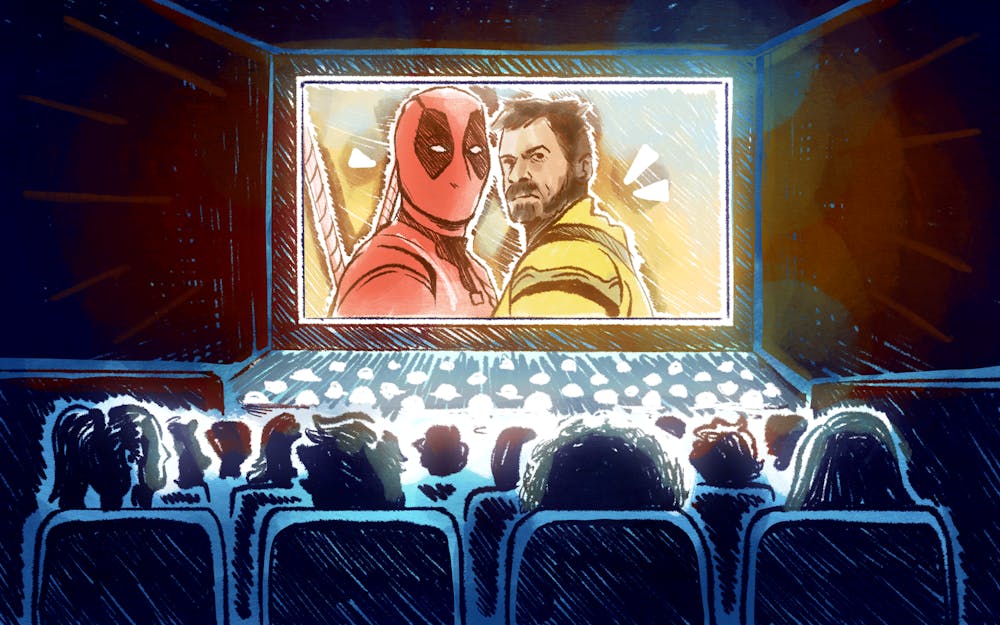It’s no question that 2024 has been a big year for the box office and cinema. But all of the top 10 highest grossing films of this year have been sequels or screen adaptations. While you may not bat an eye at this fact, it does demonstrate that cinema is losing originality. The financial success of these films poses the question: what will this mean for the future of cinema?
Yes, some of the films on this list are genuinely good films that deserve praise. For example, the films “Inside Out 2,” “Wicked” and “Dune: Part 2” all received very positive reviews. However, there are certainly films on this list that do not match this quality, for example “Moana 2” and “Despicable Me 4,” which received mild to bad reviews.
This then begs the other question, are people even asking for these films? Does anyone want another “Despicable Me” movie? And yet they get made anyways.
When comparing the highest grossing films of 2024 to those of 1994, this epidemic of sequels becomes even more apparent. Of the top ten films of 1994, only three of them were adaptations, and there were no sequels. This list also includes some films that have become classics, such as “Forrest Gump,” “The Lion King” and “Pulp Fiction.” This puts into perspective the films that are now racking up the highest box office numbers, showing how we are trading in bold, distinctive ideas for familiarity.
The reason we gravitate toward sequels is because they’re familiar to us. We fall in love with characters, worlds and storylines which is why we rewatch our favorite films so much. However, after a certain point, we crave new installations of our favorite movies so that we can re-experience all the joy and exhilaration we felt on our first watch. The problem with this idea is that it tends to blind us to the actual quality of the films.
If you see that your favorite film or franchise is getting another installment, chances are you’re going to go watch it in theaters opening weekend, regardless of whether it gets good reviews or not. When we love something, we look at it with rose tinted glasses; we push aside its faults because it has our favorite characters, our favorite fantasy land or our favorite actors. Production companies know this.
These companies know they’re guaranteed to make a lot of money if they simply make a sequel or adaptation of a popular movie, and what’s even more convenient for them is that they know it doesn’t even have to be good; people will still show up.
This phenomenon can be seen with Pixar. This subsidiary of Walt Disney Studios has been known for making distinct and emotionally driven films of high quality. However, Pixar’s past couple films, including “Elemental,” “Turning Red” and “Luca,” have underperformed despite being inspired by the filmmakers’ lives. Thanks to drawing on personal inspirations, these films were authentic and raw, providing distinctive storylines, but they did not grab audiences’ attention. This year, Pixar released its first sequel since “Incredibles 2” in 2018 with “Inside Out 2,” and, unsurprisingly, it performed exceptionally well in the box office, becoming the highest grossing film of the year.
When you compare this sequel’s performance with Pixar’s autobiographical films of the past couple years, the difference is insane. Last year, Pixar released “Elemental,” a film based on the filmmaker’s experience with immigration, which has a lifetime gross of $154,426,697. “Inside Out 2,” on the other hand, made essentially this same amount in only its opening weekend. This demonstrates the significant outperformance of sequels compared to original films.
At the end of May, the Chief Creative Officer of Pixar, Pete Docter, said the studio is going to forego personal stories in the future, replacing them with sequels and spinoffs that are guaranteed to perform better.
This rise of sequels and adaptations undermines the chance for quality films that are distinctive and original to be made. This also means that filmmakers coming from diverse backgrounds who want to share their experiences through filmmaking will have less opportunity to have their films made, as production companies will be focusing on making sequels.
memories.
Looking ahead, the top 10 most anticipated films of 2025, according to Fandango, are also all sequels and adaptations, so it doesn’t seem like this trend is going to end anytime soon. Rather, it feels like this is just the beginning of a reign of unoriginality in cinema — that is throwing storytelling down the drain. I encourage you to broaden your movie picks in 2025 and try going out and seeing films that may not be as popular as the big-name sequels and adaptations. You may just discover your new favorite film, rather than watching the fifth installment of your favorite franchise that you never asked for.






